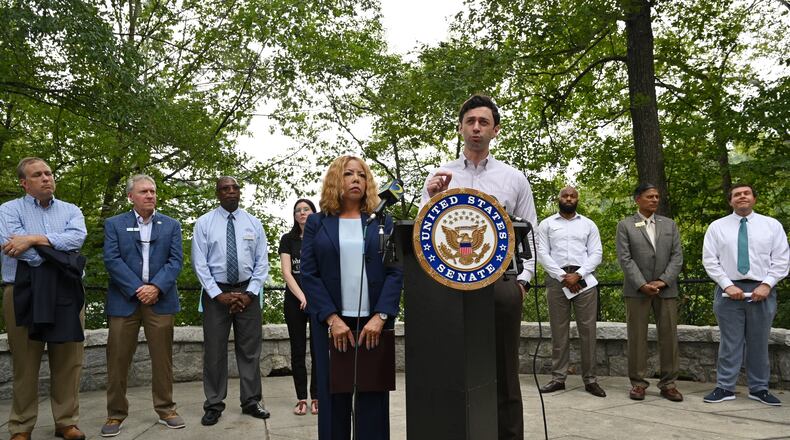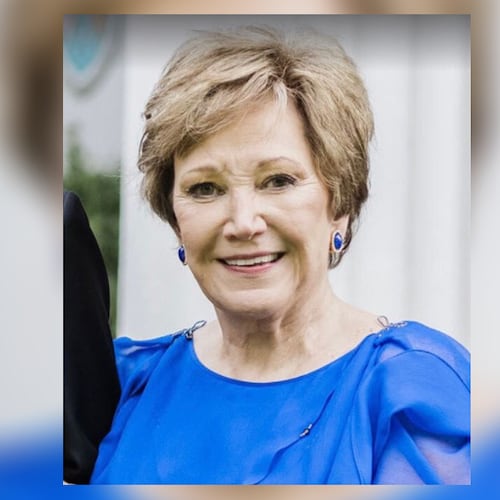The Chattahoochee River winds from the North Georgia Mountains to the Florida line. Much of the river’s shoreline is in need of restoration, and broad swaths of the river don’t meet federal water quality standards.
On Thursday, U.S. Rep. Lucy McBath and U.S. Sen. Jon Ossoff touted millions of federal dollars to improve the Chattahoochee that were passed as part of reauthorization of Water Resources and Development Act last December. Part of that bill — known as the Chattahoochee River Act — authorizes the U.S. Army Corp of Engineers to spearhead cleanup and restoration projects throughout the waterway.
The act comes with an initial $40 million investment, with hopes of more money in the future as projects grow, Ossoff said.
“This, over the next decade, will have a transformative effect for the better,” Ossoff said at an event at Jones Bridge Park in Johns Creek, “improving water quality up and down the river and its tributaries, which stretch into so many corners of our state.”
The Chattahoochee River is a vital water resource in Georgia, supplying 70% of metro Atlanta’s drinking water, according to the Georgia River Network.
But it is also vulnerable. A recent sewage treatment issue closed more than a dozen miles of the Chattahoochee to boaters and other recreational users.
Separately, more than 1,000 miles of waterway on the Chattahoochee that do not meet water quality standards, according to the Chattahoochee Riverkeeper organization. Just steps away from where McBath and Ossoff addressed the public Thursday was a shoreline restoration project, which fenced off areas of the shoreline to protect from worsening erosion.
The Corps of Engineers has been tasked with conducting a restoration plan that identifies specific projects and needs along the river. Ossoff said he hopes that the plan will be developed in the next 18 to 24 months.
The plan will be developed with other federal agencies such as the Environmental Protection Agency and the Department of Commerce, as well as with state and local officials, said Jeremy LaDart, Corps of Engineers Mobile District Chief of Planning and Environmental Division.
LaDart said the Corps of Engineers will work to identify top priorities to not only the most benefits but also ones that can be “built as quickly as possible,”
“That is the goal of Congress and the Corps of Engineers,” he said.
Bonnie Averea, of Johns Creek, said she cares deeply about the river’s health and was impressed by the collaboration been federal and local officials and organizations.
Gwinnett County Commission Chair Nicole Love Hendrickson also commended the collaboration from the federal lawmakers. The cost share for the projects will be 75% federal funding and 25% local.
“When we first found out this legislation was authored and enacted, we were really excited,” Hendrickson said. “To have our federal representatives truly pouring into an investment in local infrastructure means such a big deal to us.”
About the Author
Keep Reading
The Latest
Featured




